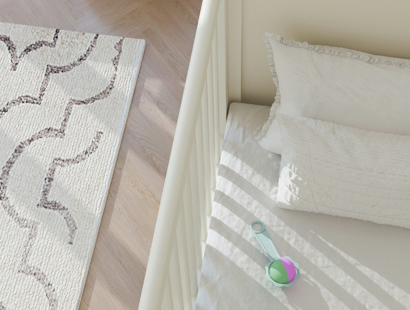
Continuing the conversation around birth trauma and childbirth-related PTSD
In May 2024, the Birth Trauma All-Party Parliamentary Group (APPG) published its first report documenting over a thousand individuals’ experiences of birth trauma. In this article, Amy Anderson and Ella Barker discuss the Report’s recommendations and emphasise the need for urgent action.
There is no single, hard and fast definition of ‘birth trauma’. It isn’t a one-size-fits-all concept. In its widest sense, birth trauma includes any traumatic experience related to pregnancy, birth or the post-natal period, experienced by the birthing parent, the partner and/or the baby.
The Birth Trauma All-Party Parliamentary Group elaborates on this definition, suggesting that birth trauma includes any birth experience leaving those involved feeling out of control, threatened, powerless or terrified. Their definition highlights the distressing impact that birth trauma has, which can be mental and/or physical, and touches on the after effects of birth trauma, which can hamper a person’s ability to lead a normal life.
In July 2023, Theo Clarke MP set up the Birth Trauma APPG with the aim of investigating the reasons for traumatic birth and developing policy recommendations to reduce the rate of birth trauma. She went on to share her own personal story of birth trauma in the first ever debate on the subject in Parliament in October 2023.
'All-Party Parliamentary Group on Birth Trauma Listen to Mums: Ending the Postcode Lottery on Perinatal Care (2024)'
The Inquiry was launched in January 2024 and went on to gather evidence from over 1,300 people, including parents and professionals working in maternity care.
The APPG published its Report in May 2024, calling on the Government to publish a National Maternity Improvement Strategy, led by a new Maternity Commissioner who will report to the Prime Minister. The Report is available to access online under the title ‘All-Party Parliamentary Group on Birth Trauma Listen to Mums: Ending the Postcode Lottery on Perinatal Care (2024)’.
Many of the ways in which the Group suggests the Government should look to improve maternity care in the UK touch upon the issue of mental health. This is hardly surprising when research evidence shows that '4-5% of women develop post-traumatic stress disorder (PTSD) every year after giving birth, amounting to approximately 30,000 women in the UK, while about a third of women experience birth as traumatic'.
'Learning to live again'
Some of the Report’s recommendations for improving maternity care provision include:
- the universal granting of access to specialist maternal mental health services across the UK to end the ‘postcode lottery’ patients currently encounter
- the implementation of ‘post-birth services’, such as Birth Reflections, to give mothers a safe space to speak about their childbirth experiences
- the provision of support for fathers and birth partners throughout and post-delivery
The Report itself isn’t an easy read as it sets out the first-hand stories of countless families who contributed evidence to the Inquiry. Their recollections are raw and powerful and it’s all too easy to see how many of their experiences could have led to the development of PTSD.
Mother, business woman and former 'Made in Chelsea' star, Louise Thompson, recently published a book ‘Lucky: Learning to Live Again’, in which she tells her own story of the horrendous suffering that she and her family endured following the birth of her son. There is no doubt that Louise’s bravery as a public figure sharing such personal details of her own suffering will help many others who have also survived their own experience of birth trauma and find themselves learning to live again.
Providing the right support
Aside from the need to address the postcode lottery in terms of the perinatal and postnatal mental health support available, the Report recommends a series of changes centred on the central funding of NHS maternity services, such as the need to recruit, train and retain more midwives, obstetricians and anaesthetists in order to ensure safe levels of staffing. The Report also recommends the mandatory training of staff on trauma-informed care in the maternity setting.
Responding to the Report, the Royal College of Obstetricians and Gynaecologists (RCOG) confirmed that they stand in support of the APPG’s call for the Government to deal with the staffing challenges in maternity care. RCOG acknowledges that the workforce right across the health system needs to be ready and able to meet the needs of perinatal women and their families, which, it says, includes the appropriate provision of general practice support for post-natal checks and the availability of appropriately trained interpreters (to tackle inequalities in maternity care among ethnic minorities, particularly Black and Asian women).
Conclusion
The powerful first-hand stories contained in the Report bring into sharp focus the need for the Government to investigate and take urgent action in order to tackle these important issues and reduce the rate of the horrendous suffering associated with birth trauma.
Brave families sharing their birth trauma stories are helping to spark conversation that has the potential to improve maternity care provision in the NHS. The ensuing discussions that take place in the political sphere, within the NHS and on a personal level among the public will help to broaden our collective understanding of perinatal and postnatal mental health disorders”.
Amy Anderson is an associate in the medical negligence team. She represents clients in civil claims for compensation arising as a result of negligence, specialising in acting for clients with injuries arising from birth and birth trauma. Ella Barker is a legal assistant in the personal injury and medical negligence team advising on medical negligence claims including during pregnancy and childbirth.
Get in touch
If you would like to speak with a member of the team you can contact our medical negligence solicitors by email, by telephone on +44 (0)20 3826 7517 or complete our enquiry form below.



